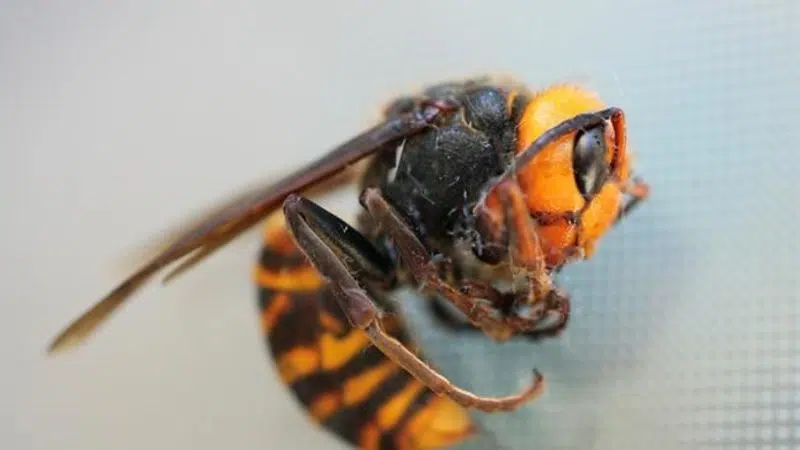
Invasive hornet found on Vancouver Island for the first time: B.C. government
VICTORIA — An insect that is listed as an invasive species in British Columbia has been found in the Nanaimo area, which the provincial government says is the first time Asian giant hornets have been found on Vancouver Island.
The three large insects were confirmed to be Asian giant hornets or vespa mandarinia by Canadian and international experts.
The provincial government says the hornets are dormant and unlikely to be seen in fall and winter, but it is asking anyone who thinks they have seen them to report their findings to the Invasive Species Council of British Columbia.
The hornets feed on honeybees and can destroy hives in a short time period.


